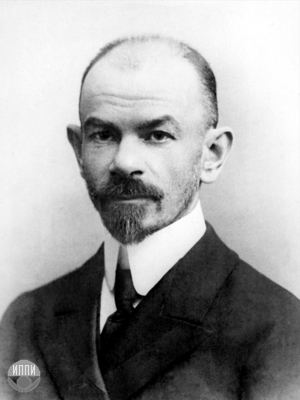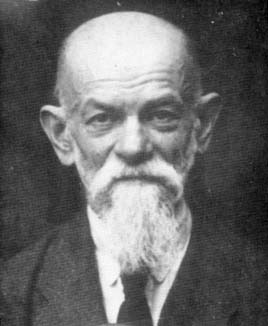<Back to Index>
- Mathematician Dmitri Fyodorovich Egorov, 1869
- Writer Johan Sebastian Cammermeyer Welhaven, 1807
- Emperor of Japan Antoku, 1178
PAGE SPONSOR


Dmitri Fyodorovich Egorov (Russian: Дми́трий Фёдорович Его́ров; December 22, 1869, Moscow, Russia – September 10, 1931, Kazan, Soviet Union) was a Russian and Soviet mathematician known for significant contributions to the areas of differential geometry and mathematical analysis.
Egorov held spiritual beliefs to be of great importance, and openly defended the Church against Marxist supporters after the Russian Revolution. He was elected president of the Moscow Mathematical Society in 1921, and became director of the Institute for Mechanics and Mathematics at Moscow State University in 1923. However because of Egorov's stance against the repression of the Church, he was dismissed from the Institute in 1929 and publicly rebuked. In 1930 he was arrested and imprisoned as a "religious sectarian", and soon after was expelled from the Moscow Mathematical Society. Upon imprisonment, Egorov began a hunger strike until he was taken to the prison hospital, and eventually to the house of fellow mathematician Nikolai Chebotaryov where he died.
Egorov studied potential surfaces and triply orthogonal systems, and made significant contributions to the broader areas of differential geometry and integral equations. His work influenced that of Jean Gaston Darboux on differential geometry and mathematical analysis. A theorem in real analysis and integration theory, Egorov's Theorem, is named after him.